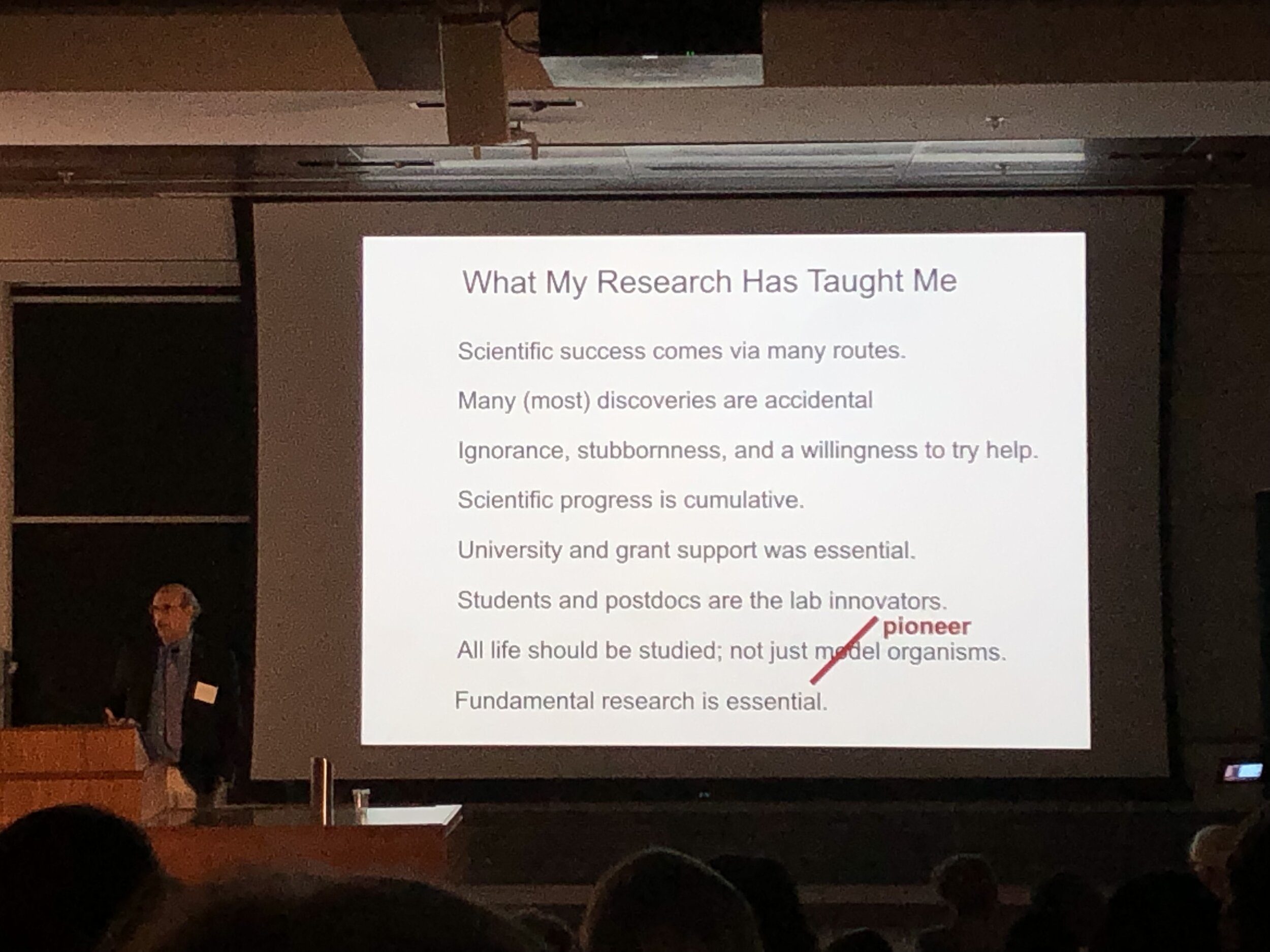Lessons from a Nobel Laureate (not John Polanyi)
I first encountered Martin Chalfie, the co-winner of the 2008 Nobel Prize in Chemistry for his work on the green fluorescent protein (GFP), at the 2012 International Science and Engineering Fair in Pittsburgh. [Insert photographic evidence as soon as I dig it out of my archives.] I was a chaperone for the extraordinary students of Team Canada.
In 2004, when I attended as a participant, I must have been so nervous about the judging periods that I have no recollection of the unique scientific programming complementing the competition. As an “adult-in-charge”, I was free to explore and attended the Nobel Laureates panel. I met Dudley Herschbach, who was delighted to learn I was studying with his old friend John Polanyi. [John, upon hearing of this encounter: “Dudley is the one everybody would like as their uncle.” I digress.] Prof. Chalfie must have made an impression on me because I went to talk to him after the panel — something I rarely did a decade ago, and only slightly less so now.
Today I went to listen to him again. He was visiting the University of Toronto as part of the Nobel Prize Inspiration Initiative. While I was already behind schedule on this week’s goals, I figured some inspiration couldn’t hurt, especially while I’m endeavouring to craft a research proposal.
In his preamble, two topics:
Scientists should promote human rights in science and engineering.
We should also: a) use preprint servers and b) organize preprint journal clubs to discuss science, gather feedback, encourage sharing, and build a community in our disciplines.
Then he recounted the history of his achievement of green fluorescence in C. elegans nematodes. With his narrative, he artfully imparted his wisdom to us, a room full of students and young scientists teeming with optimism and apprehension about their career. I captured the two essential slides.
Myths about Scientists:
Throughout my studies, I figured out most of these myths, but at times the first and last ones remain harder for me to accept. Nevertheless, I appreciated his perspective and humility.
What his research has taught him:
He ended his talk by reminding us of the importance of fundamental research, quoting Robert R. Wilson during a 1969 Congressional testimony. When asked about the impact of building the Fermi Lab particle accelerator on national security, Wilson replied:
“It has only to do with the respect with which we regard one another, the dignity of men, our love of culture. It has to do with are we good painters, good sculptors, great poets? I mean all the things we really venerate in our country and are patriotic about. It has nothing to do directly with defending our country except to make it worth defending.”
The most important advice I will retain from Martin Chalfie’s talk came during the question period after the talk. Addressing a student’s concerns about the pressures and expectations in academia, he told us to focus on the science. If we do the science well, then it doesn’t matter if we meet the right people, network broadly, publish in certain journals, get certain accolades, etc. So, with that, I shall return to focussing on my science.

